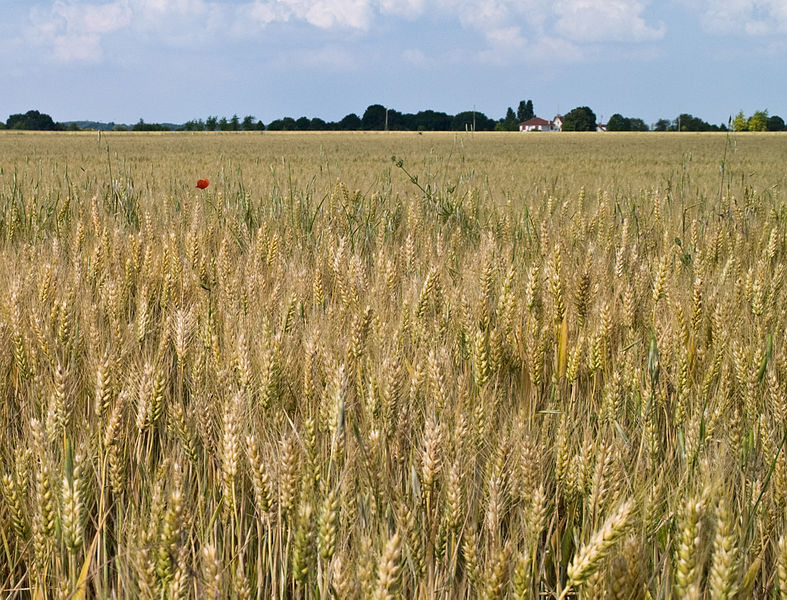
Jean Lefevre, like many French farmers, has just endured one of the most challenging wheat harvests in decades. Since last October, when he began sowing his
grain, the rain seemed almost relentless, continuing right up until he started gathering the crop last month.
France, the European Union's largest grain producer, has faced unusually wet weather over the past year, including a month of continuous rain in October-November, the wettest spring on record, and violent storms just last month.
The persistent rain and waterlogged fields delayed planting and hindered crop development, leading the farm ministry to estimate that France will harvest its worst wheat crop since the 1980s, with yields down 25% from last year. Other cereals, such as winter barley, have also been severely affected.
"Since October, we've had our feet in water. We sowed in very challenging conditions, and today we're still harvesting in wet soil. I have neighbors who got stuck with their harvesters or trailers," said Lefevre, 43, who farms in the Oise region of northern France.
Wheat is the most widely cultivated cereal in France, with about half of it exported both within and outside the EU. This contributes positively to the country's trade balance, although France has faced stiff competition from Black Sea countries in recent years.
However, being a player on the global market also exposes France to fluctuations in international prices. While farmers might have expected local prices to rise due to tight supplies, they remained under pressure from a global grain surplus caused by large harvests in major producing countries like Russia.
Triple Challenge: Low Yields, Depressed Prices, and High Costs
The situation is further compounded by rising production costs since the pandemic, including higher prices for equipment, fertilizers, and land rental. These increased costs, combined with low crop yields and depressed prices, present a triple challenge for farmers.
"It's everything at once—catastrophic crops, low prices, and costs that have never been so high," said Laurent Pollet, who farms 200 hectares in the Oise region.
Farmers are also frustrated that this crisis coincides with France having only a caretaker government following parliamentary elections called by President Emmanuel Macron last month.
"When both crops and prices are bad, the results are catastrophic. Some people will need psychological support, and most of us will need financial assistance," Lefevre said. "But without a stable government, it's very complicated. We were already talking to a wall, and now we're talking to the wind."
In response, the farm ministry announced on Monday that it would support grain growers through the early payment of annual EU subsidies, increased compensation under a new agricultural insurance scheme, and relief on land taxes.
Earlier this year, Lefevre joined thousands of farmers in protests, blocking major highways around Paris, demanding fair compensation and protesting against excessive environmental regulations.
Despite the current grain crisis, wheat growers say further protests are unlikely, mainly because they are too busy with their workload. "We are harvesting, rapeseed sowing starts in 10 days, then we move on to wheat sowing, and the beet harvest begins in mid-September. We are in a tunnel until November 15, so going back to the streets is not on the agenda," said Emeric Duchesne, another grain farmer in the Oise region. Photo by Myrabella, Wikimedia commons.



































